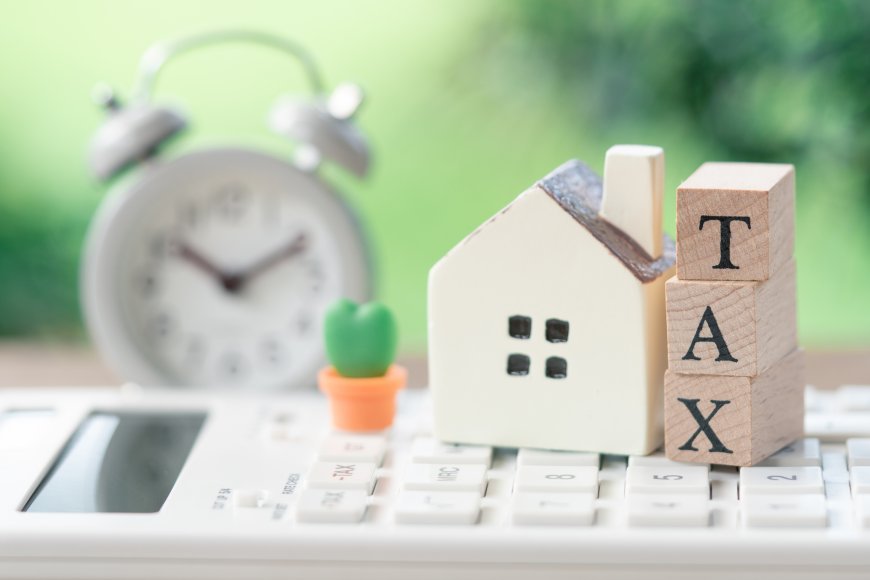How Certain Home Upgrades Can Impact Your Property Taxes

When it comes to homeownership, making improvements to your property can enhance both its functionality and value. Whether you're upgrading your kitchen, adding a new deck, or finishing your basement, these renovations can bring many benefits. However, one often-overlooked aspect of home improvements is their potential impact on your property taxes.
In some cases, home upgrades that increase the value of your property can also lead to a higher property tax bill. Understanding how specific home improvements influence property taxes is key for homeowners who are planning to renovate or remodel their homes. In this article, we'll discuss how home improvements can increase property taxes, what types of upgrades have the most significant effect, and how to manage these changes effectively.
What Are Property Taxes?
Before diving into how renovations can impact your taxes, it’s important to understand how property taxes are generally calculated. Property taxes are typically based on the assessed value of your home, which is determined by your local government’s assessor. The assessed value is meant to reflect the fair market value of your property.
Local governments often use the assessed value to determine how much homeowners must pay in taxes each year. The higher your property’s assessed value, the higher your tax bill will be. This means that any improvement that increases the value of your home could trigger a higher property tax rate.
Home Improvements That Increase Property Taxes
Certain home improvements can lead to an increase in the assessed value of your property, which in turn results in higher property taxes. Below are some common types of home upgrades that can lead to a property tax increase.
1. Adding Square Footage (Expanding the Home)
One of the most significant ways to increase your home’s value—and your property taxes—is by adding square footage to your home. This could include building an extension, adding a new room, or finishing a basement or attic.
Why it impacts property taxes:
· Any increase in square footage raises the overall market value of your property.
· For example, adding a new bedroom, bathroom, or additional living area makes your home more valuable, and your local tax assessor will adjust the assessed value to reflect this.
Example:
· In California, adding a bedroom or expanding your home can increase its assessed value significantly, resulting in higher property taxes. It's important to check if your local tax assessor will reassess the property when substantial changes are made.
2. Upgrading the Kitchen or Bathroom
Kitchen and bathroom remodels are popular home improvement projects because they can make a home more livable and modern. However, major renovations in these spaces can also increase the overall value of your home.
Why it impacts property taxes:
· A kitchen or bathroom remodel can increase the appeal and market value of your home, especially if the renovations are high-end. A fully renovated kitchen with new appliances, granite countertops, and custom cabinetry, for example, will increase the home’s value, and subsequently, the property taxes.
Example:
· A home with upgraded bathrooms or kitchens often fetches a higher price when sold, and local tax assessors will use this higher price to adjust your property’s assessed value and tax rate.
3. Adding an ADU (Accessory Dwelling Unit)
An Accessory Dwelling Unit (ADU), also known as a granny flat or in-law suite, is an independent living space added to a property, typically in the backyard or attached to the main home. ADUs are increasingly popular due to the growing demand for affordable housing, but they can also significantly impact property taxes.
Why it impacts property taxes:
· ADUs increase the overall square footage and value of your property, leading to higher assessed value.
· In many areas, adding an ADU will automatically trigger a reassessment of your property value, which could result in higher taxes.
Example:
· In California, the addition of an ADU can increase your home’s market value significantly, leading to a corresponding increase in property taxes. However, some areas may offer exemptions or tax benefits to encourage ADU construction, so it’s important to check with your local assessor.
4. Landscaping and Outdoor Improvements
Landscaping can be a more subtle way to increase your home’s value and, consequently, your property taxes. Major outdoor improvements such as building a pool, installing high-end landscaping features, or constructing outdoor living spaces like decks, patios, or gazebos can increase your property’s value.
Why it impacts property taxes:
· These types of improvements enhance the overall appeal and value of your property. While the increase in value might not be as dramatic as adding a room or renovating a kitchen, it can still trigger a tax increase.
Example:
· A newly landscaped garden, an outdoor kitchen, or a pool might not add as much value as a new room, but it could still result in a noticeable increase in your property’s assessed value.
5. Upgrading the Exterior (Roof, Windows, and Siding)
Renovating the exterior of your home, such as installing new windows, upgrading the roof, or replacing the siding, can improve your home’s curb appeal and increase its value. These exterior improvements not only make the home more attractive but can also enhance its energy efficiency.
Why it impacts property taxes:
· These exterior upgrades make your property more appealing to potential buyers, which can increase its market value and, in turn, raise its assessed value for tax purposes.
Example:
· Replacing an old roof or upgrading to energy-efficient windows could add considerable value to your home, which would likely lead to higher property taxes. Homeowners who install solar panels may also face higher taxes if the improvements increase the home’s value.
How to Minimize the Tax Impact of Home Improvements
While many home improvements will inevitably increase your property taxes, there are ways to minimize the tax impact. Here are some strategies:
1. Understand Your Local Tax Laws
Property tax laws can vary significantly by state, county, and even city. In some areas, only certain types of improvements may trigger a reassessment, while in others, any major renovation could result in higher taxes.
Actionable Tip:
· Before starting a renovation, check with your local assessor’s office to understand how home improvements affect property taxes in your area. Some regions may have exemptions or limits on tax increases for specific types of upgrades.
2. Time Your Renovations Wisely
In some states, property taxes are assessed on a specific date, and improvements made after that date might not affect the current year's tax assessment. By timing your renovations, you might be able to avoid an immediate property tax increase.
Actionable Tip:
· If you're planning significant renovations, try to complete them just before your property’s scheduled reassessment. This can help you avoid paying higher taxes until the next assessment period.
3. Consider Non-Value-Adding Renovations
If your goal is to improve your home’s livability without increasing property taxes, consider renovations that don’t significantly raise the value of your home. For example, cosmetic upgrades like painting, retiling, or updating fixtures may enhance your home’s appearance without increasing its market value substantially.
Actionable Tip:
· Focus on upgrades that improve the functionality or aesthetic of your home without dramatically changing its market value, such as landscaping that doesn’t include major installations or replacing outdated light fixtures.
Conclusion
Home improvements can greatly enhance your living space and increase the value of your property. However, it's important to understand that certain upgrades—such as adding square footage, upgrading kitchens or bathrooms, installing an ADU, or enhancing the exterior—can lead to higher property taxes. To manage this impact, homeowners should familiarize themselves with local tax laws, time their renovations carefully, and focus on improvements that add value without triggering major tax hikes. By being proactive and informed, you can ensure that your home improvements benefit you financially in the long term, without the unexpected burden of increased property taxes.
What's Your Reaction?

























































